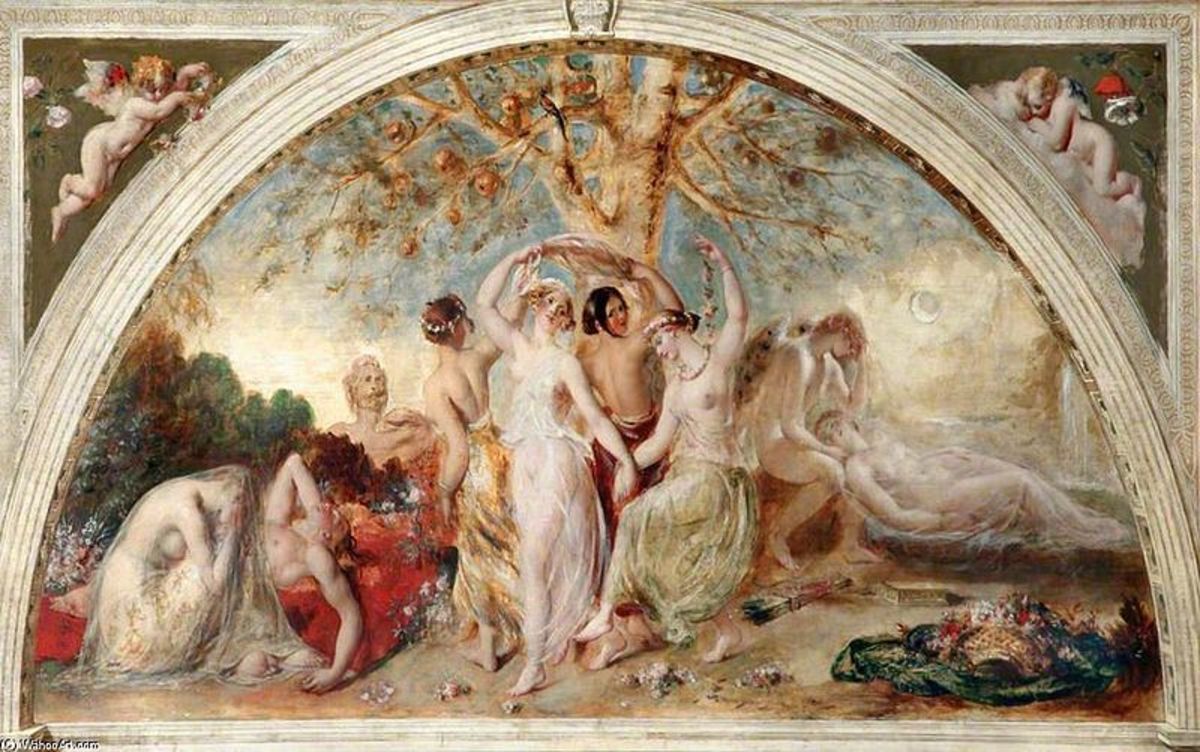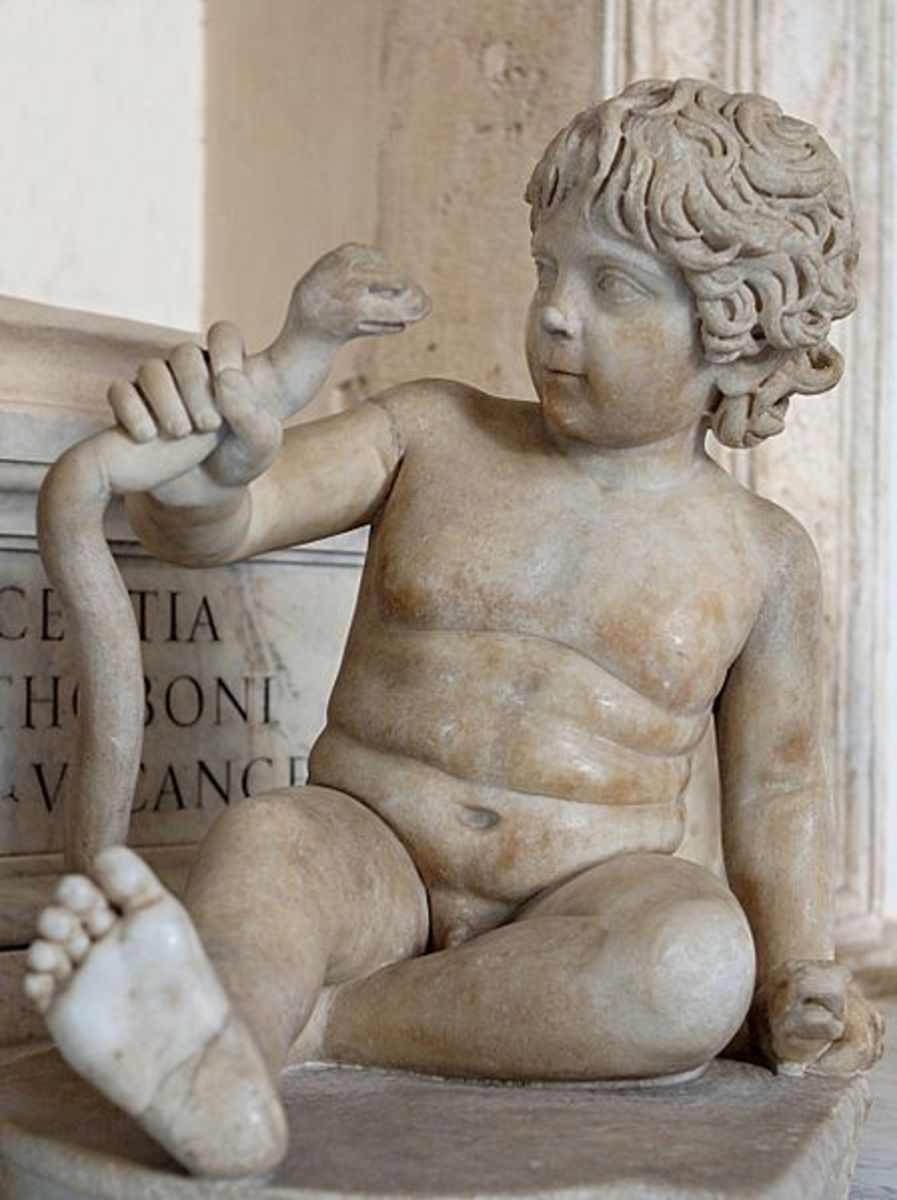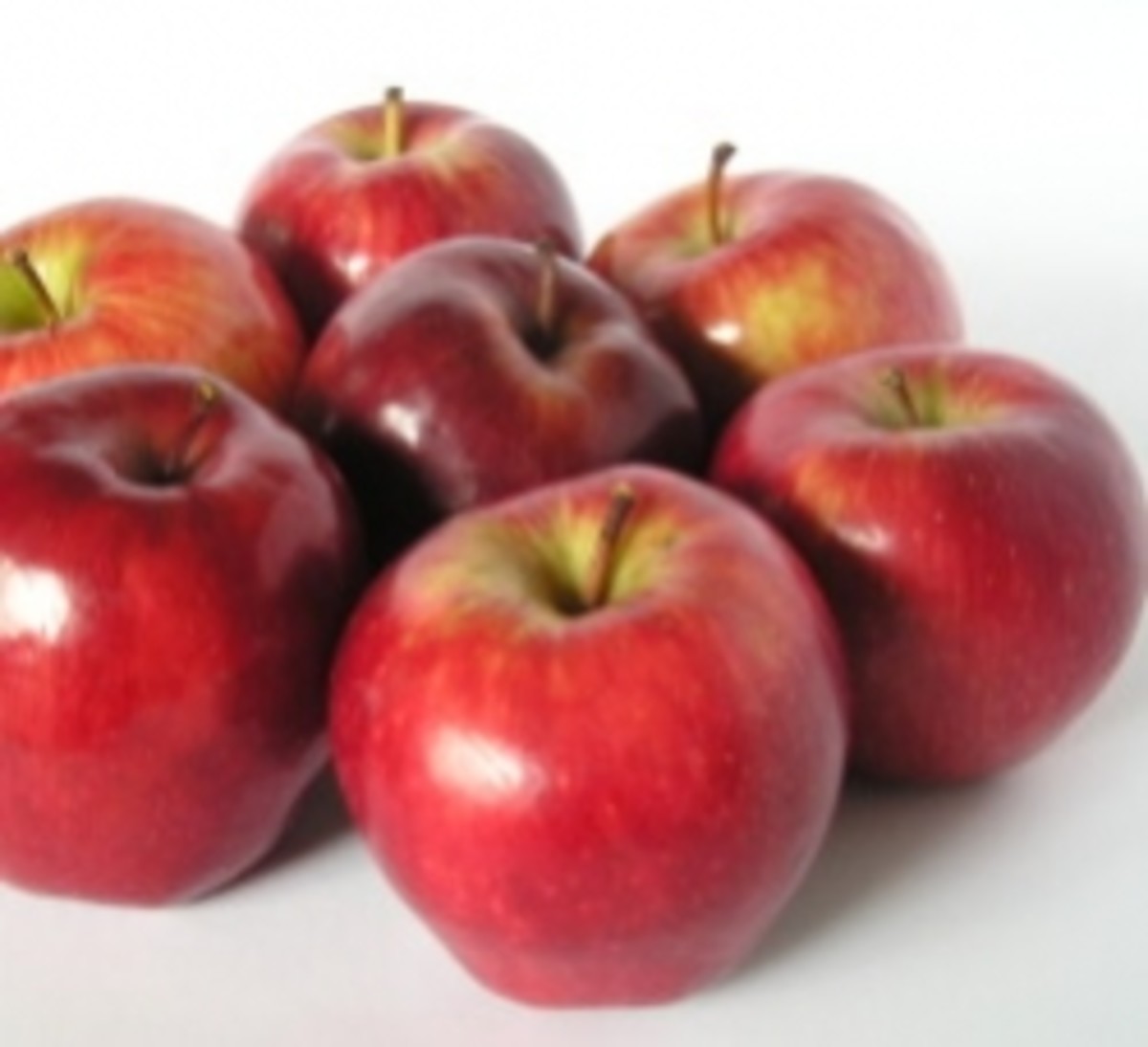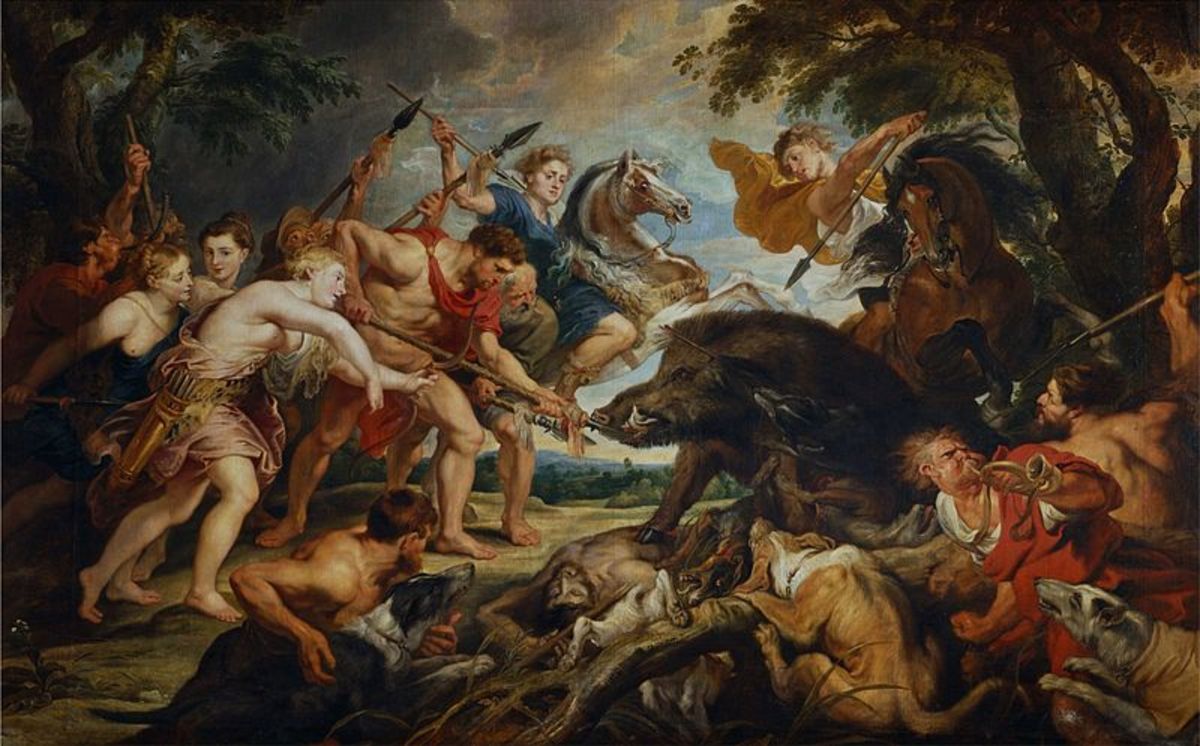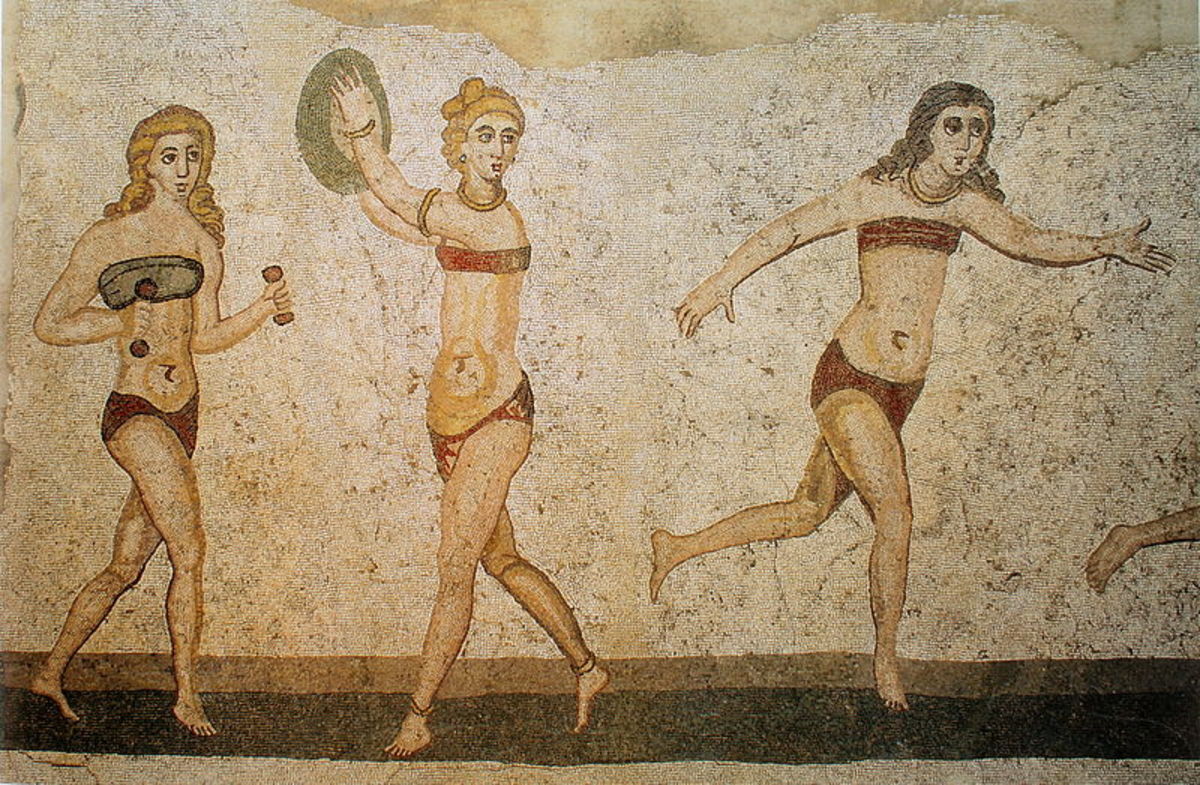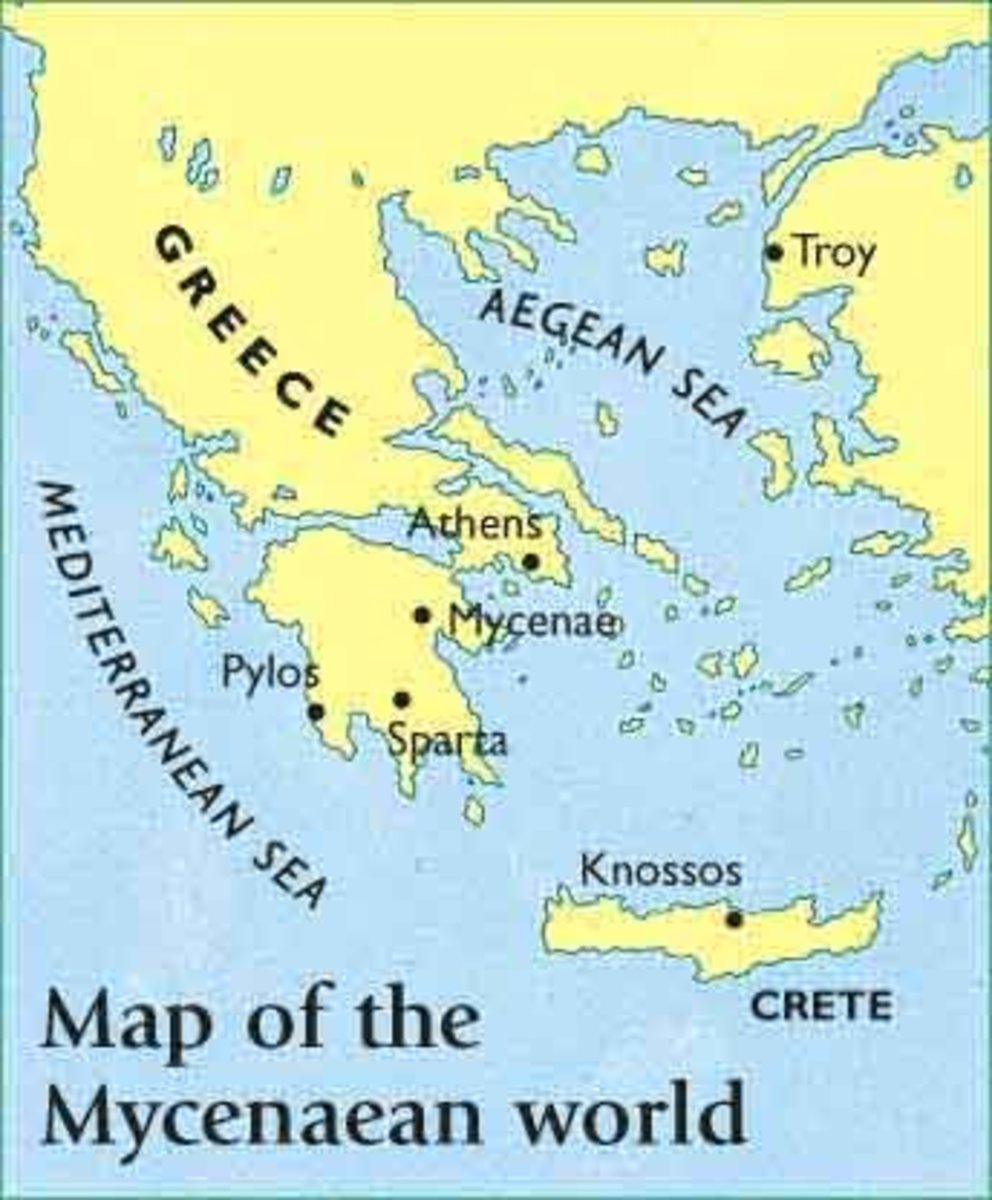The Apples of Legend
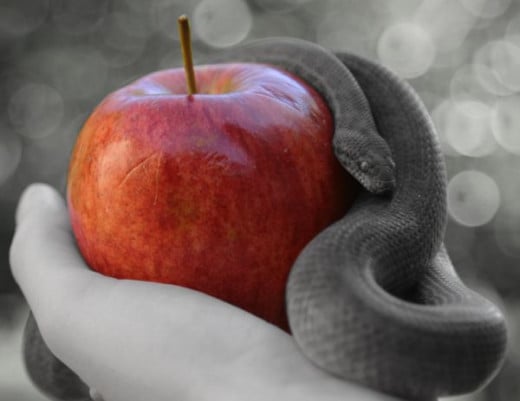
Comfort Me with Apples
"Stay me with flagons, comfort me with apples" sang Solomon.
In his wisdom, Solomon called for apples, perhaps these were the Golden Apples of Legend, a familiar element in fairy stories and folk tales.
A hero has to retrieve the apples before he can marry the King's daughter, fulfill his destiny, liberate those held in thrall, and generally save the world from evil. You know how the story goes
What's your choice?
What would you like an apple for?
Apples are rather commonplace these days
These days apples are common, we give an apple to the teacher, or eat one a day to keep the doctor away.
No longer do we believe that apples are gifts from the gods or guarded by dragons, and we know that apples don’t magically heal wounds or make us irresistibly beautiful. Nor, sadly, will one bite from an apple grant us eternal youth.
But once upon a time, apples were all of these things.
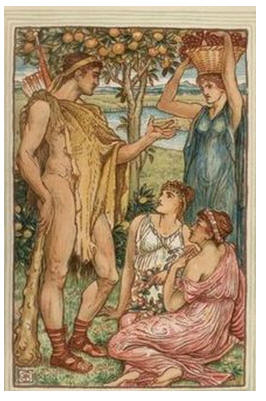
The Apples in the Garden of the Hesperides
Hera, Queen of Olympus, had an orchard in the west called the Garden of the Hesperides, somewhere toward the sunset, at the very edge of the world. It was here that a grove of immortality-giving golden apples grew.
The eleventh Labour of Hercules was to steal the apples from this garden.
These apples were guarded by the Hesperides, lovely nymphs who were the daughters of Atlas, the Titan who held the sky and the earth upon his shoulders. Hera also placed in the garden a never- sleeping, hundred- headed dragon, named Ladon, as an additional safeguard.
So off went Hercules to tackle them.
Hercules has an idea
Our hero journeyed through Libya, Egypt, Arabia and Asia, having numerous blood -chilling adventures along the way. You don’t want to hear about these long and blood-soaked adventures just now, let’s stick with those apples!
Finally, acting on advice, Hercules asked Atlas to go and fetch the apples. But how could Atlas go and get these magical apples? He was holding up the sky at the time!
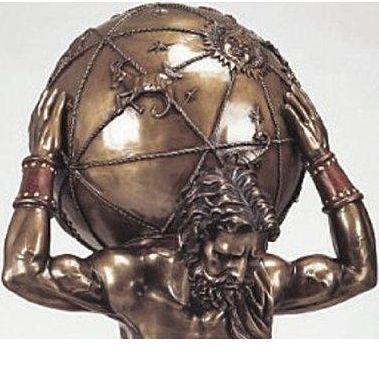
Hercules tricks Atlas
Poor fatigued Atlas hated holding up the sky and the earth so much that he jumped at the chance of a break. He thankfully passed his burden over to Hercules, but, on returning with the apples, he wanted Hercules to stay there and hold the heavy load for eternity.
Hercules slyly agreed, but asked Atlas to take back the sky again, just for a moment, while the hero put some soft padding on his shoulders to help him bear the weight of the sky and the earth. Atlas put the apples on the ground, and lifted the burden onto his own shoulders.
And so Hercules picked up the apples and quickly ran off!
In your opinion ...
Did Hercules do the right thing?
The Labour of Hercules was all for nothing
But these golden apples of immortality belonged to the gods and, after all the trouble Hercules went through to get them, duping poor Atlas, it was all for nothing.
Hercules had to return the apples to Athena, who took them back to the garden at the edge of the world.
And that is where they are today. If you can find them, you will gain the gift of eternal life.
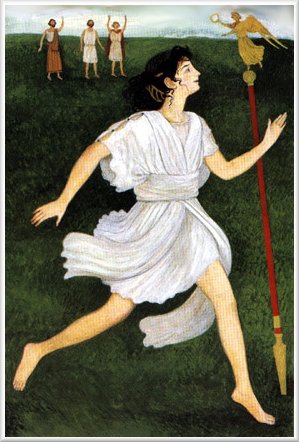
Atalanta
Atalanta was a superb athlete. Her father wanted a son and so, when Atalanta was born, he exposed her on a hillside to die. Happily, she was nurtured by a bear sent by Artemis, the Protector of Women, and kept safe until a group of hunters found her and raised her to adulthood.
Atalanta, like Artemis, was an excellent runner, archer and hunter. (It’s even said that she was one of the Argonauts but can you see Jason, that boastful teenager, allowing a woman on his ship?) In any case, Atalanta’s father was proud of her skills in masculine activities and took her back to his palace.
Now that she was a princess, she was expected to marry but Atlanta, very sensibly, did not want a husband.
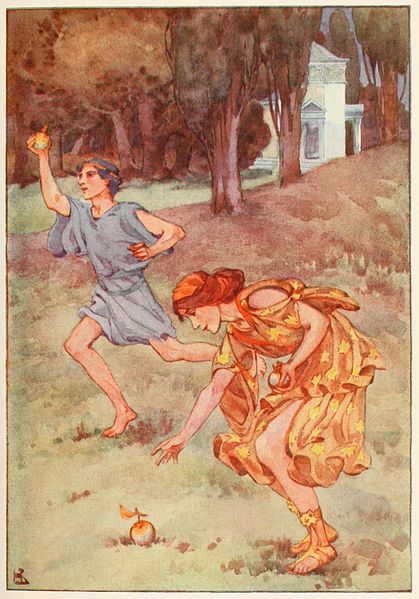
Atalanta and the Golden Apples
Atalanta swore that she would race any suitors and the one who beat her would be the lucky man to marry her, but if she won, she would kill the losers.
One youth, Melanion, a little smarter than the others, went to Aphrodite for assistance. The goddess gave him a loan of three golden apples (the very same from the Garden of the Hesperides). During the race, whenever Atalanta would get ahead of Melanion, he would drop one of the golden apples, and Atalanta would stop and pick it up.
Her frequent stops gave Melanion the advantage he needed. He won the race. Alas! Atalanta had to marry him.
The Apple of Discord
The most famous mythological apple is the Apple of Discord. You may know of it as the Judgement of Paris.
Oh dear! What a tragic tale.
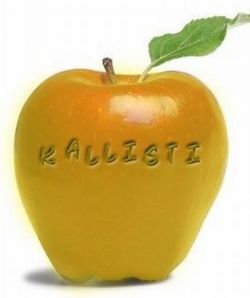
How the Tragedy started
The story starts with one of those foolish mistakes that can happen to anyone, anywhere and anytime. A party is planned. Someone is left off the invitation list. Mayhem follows.
It was the wedding of Peleus and Thetis. All the gods and goddesses of Olympus were invited – except for one – and she was Eris, the Goddess of Discord.
Eris was troublesome at the best of times – and indeed was the personification of trouble and strife. Some of her children were Ponos, Spirit of hard labour, Lethe, Spirit of forgetfulness and Limos, Spirit of starvation.
Furious at not being invited, Eris turned up anyway and tossed among the guests a golden apple with the inscription, Kallisti, meaning For the Fairest
Who is the Fairest?
Should Aphrodite, the goddess of love and beauty, get the apple?
Perhaps Hera, Queen of the Olympians, should win it?
Or maybe Athena, the grey-eyed goddess of wisdom, should have the prize.
As they were all beautiful goddesses, this was not an easy decision.
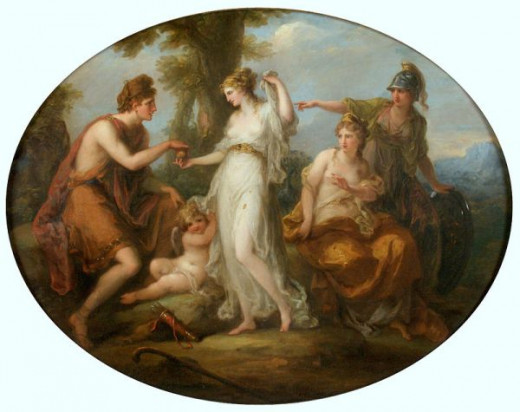
The Judgement of Paris
A squabble broke out. Zeus decided to send them to an independent arbitrator to decide which of them deserved the apple. No god was foolish enough to take this role, so it went to a simple-minded human shepherd named Paris.
Each goddess offered the lad a gift if he would just choose her. What did they offer?
Athena offered Heroic Victories, for now and always
Hera offered all of the knowledge in the whole world
Aphrodite promised the gift of attraction, that no woman could ever resist him
What's your choice?
Who would you choose?
Paris chose Aphrodite
The choice, while a difficult one for the Gods, was all too simple for a mere shepherd boy. It was pretty obvious,
Paris, a mere mortal man, took Aphrodite’s offer.
Hera and Athena, the rejected goddesses, were furious and caused great devastation to Paris and his family.
And we know what that meant – the Trojan War!
Apples of Avalon
Far from the balmy air of Greece, over the seas to a small, chilly island off Western Europe we find more magical, mystical apples.
In Britain, apples are most identified with the Island of Avalon, the Otherworld home of one of the Celtic Underworld Gods, Afallach. His name relates to the Apples that grew in this mystical land of the dead and show Avalon’s relationship to other legendary realms such as the Garden of the Hesperides.
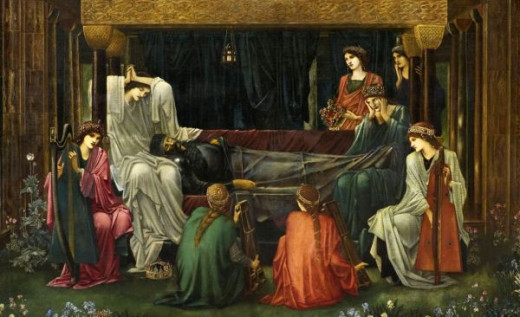
Arthur sleeps in Avalon
Avalon, it is said, is where the mortally wounded Arthur is taken to be healed, a place where there is ever sunlight and warm breezes, the land is lush with vegetation, and the inhabitants never age nor know pain or injury.
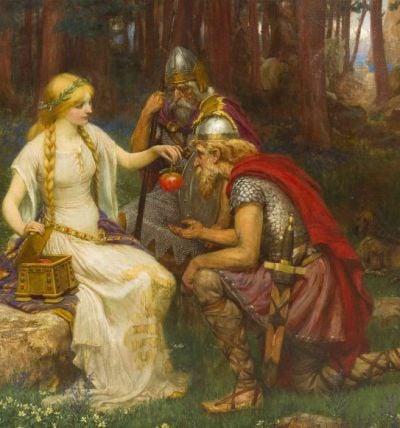
Golden Apples of the Frozen North
Much further north, we find Iduna, wife of Bragi the Poet. She was the Goddess of eternal youth and Guardian of the precious golden apples.
If any of the Scandinavian Gods felt the approach of old age, they only had to taste of one of these apples to remain young.
But a terrible thing happened! Iduna was abducted by a giant and the other gods aged rapidly. Loki was sent to rescue her so that she might restore youth again.
And restore youth she did, and will continue to do so until Ragnarok, when the world ends.
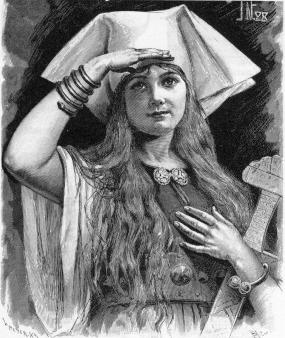
The Volsunga Apples
The apple as a symbol of riches, fertility and long life, appears in the Volsunga Saga, a 13th century Icelandic epic of the origin and decline of the Volsung clan.
In the beginning of the Saga, an apple was dropped by a goddess into the lap of a king who prayed for a son. The son who was then born had a great apple tree in the centre of his hall symbolising the continuance of the family.
(It didn’t turn out quite the way the Volsungs imagined, but that’s a story for another day)
The Volsunga Saga
- The Story of the Volsungs online
Have you ever read one of the sagas? Thrilling tales. We are mostly familiar with the stories of the ancient Greeks but the chronicles of the North have an allure all of their own.
And finally, remember this particular apple?
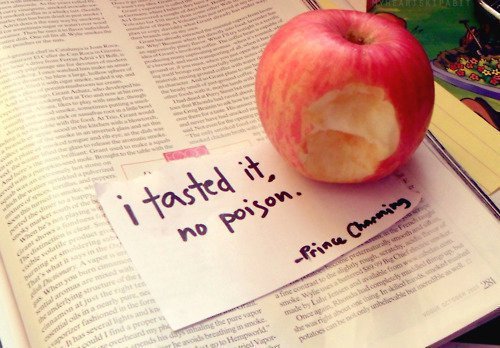
The Poisoned Apple
Do you think you know the story of Snow White and the Poisoned Apple?
Here's a different twist on the old folk tale, witty and enjoyable. The heroine in this story, Apples, is no fool. Definitely not.
Apples is a beautifully crafted novella, and less than a dollar!
Why not upset the applecart? If you don't the apples will rot anyway
Our enjoyment for the tasty apple is one of the earliest and most natural of inclinations – everyone likes apples.
Apples come in many colours, shapes, sizes, degrees of crispness, sourness and sweetness. The beauty of the apple is that its taste will change from year to year depending on the growing conditions, and the flavour will even be a little different from apple tree to apple tree.
Remember what Horace, the ancient Roman philosopher, advised :
Whatever variety of apple you choose, the best of apples are those picked by the light of the waning moon.
© 2014 Susanna Duffy


